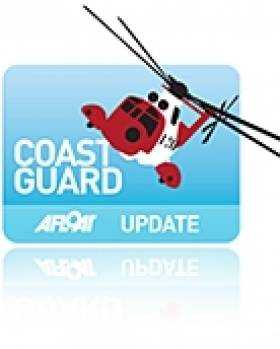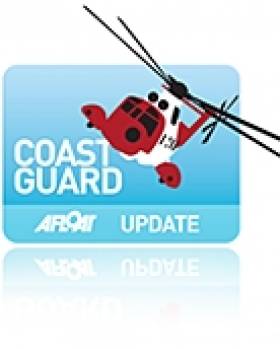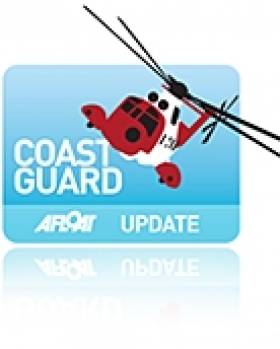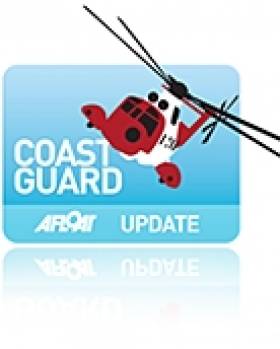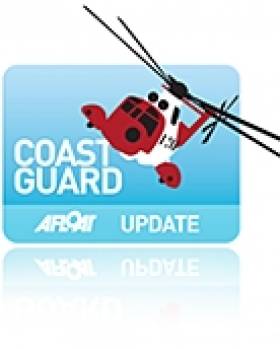Displaying items by tag: CHC Ireland
Irish Coast Guard Chopper Deal Could Be Model for UK
The director of the Irish Coast Guard has outlined the thinking behind its recent €500m deal for helicopter search and rescue services.
Chris Reynolds told Rotorhub that a simplified model based on key critera was adopted when choosing a bigger for the contract, which was awarded to CHC Ireland last year.
"With our contract, we essentially wanted to continue with what we already had, but with new technology," he said.
Rotorhub reports that the Irish Coast Guard formed a Future Helicopter Study Group to discuss the service's needs before the tender process which led to the 10-year deal for five Sikorsky S-92s.
The process stands in contrast to SAR-H, the UK's programme to overhaul its helicopter fleet which collapsed last year.
"If the UK needs to be looking at a new interim contract, they could look at how we did it," added Reynolds.
Rotorhub has more on the story HERE.
Marine Minister to Have Air-Sea Rescue Remit
Minister for the Marine Simon Coveney will have the remit for air and sea search and rescue services, it has emerged.
The Irish Times reports that the move is part of a promised consolidation of maritime functions under the new programme for Government.
Responsibilty for the Irish Coast Guard will however remain with Minister for Transport Leo Varadkar until an official transfer which is expected in the next few weeks.
Meanwhile, fellow Fine Gael TD and Minister of State for NewEra, Fergus O'Dowd, intends to push for a review of the State's €500m contract for search and rescue services with CHC Ireland.
O’Dowd said there were “significant questions to answer” over the deal signed by former Transport Minister Noel Dempsey last year.
The Irish Times has more on the story HERE.
Coast Guard Hits Out Over Search & Rescue Deal Reports
The Irish Coast Guard (IRCG) has lashed out over newspaper articles on the recent €500m deal with CHC Ireland to provide search and rescue services.
The it was recently reported in an Irish newspaper that Fine Gael TD Fergus O'Dowd called for an investigation into the deal. This followed a previous article in the same publication which claimed proposals by the Air Corps to provide the same service at a lower rate were rejected on the grounds that its main helicopter did not have a "good reputation".
But IRCG director Chris Reynolds has hit out at the newspaper for ignoring its clarifications over the CHC Ireland contract.
In correspondence seen by Afloat.ie, Reynolds answered questions from the paper regarding the nature of the deal.
Among them he explained that the invitation to tender was publicly advertised and open, but that the then Minister of Defence had made a policy decision in 2004 to remove the Air Corps from search and rescue services due to "operational difficulties" and precluded them as an option.
Reynolds emphasised that it was a Department of Defence directive that the deal be "100% civilian".
He also disputed any link between the CHC Ireland deal and one made by its parent company in the UK, which has been called into question over perceived irregularities.
Meanwhile, Afloat.ie has seen correspondence from CHC Ireland to former Minister for Transport Pat Carey assuring that the cancelling of the UK deal has no bearing on the provision of its services to the Irish Coast Guard.
Search and Rescue Deal Under Question
The Irish Coast Guard's recent €500m deal with CHC Ireland to provide search and rescue services should be investigated, a Fine Gael TD has urged.
According to the Irish Independent, Fergus O'Dowd is questioning the deal after receiving documents under the Freedom of Information act in which the head of the Irish Coast Guard said the Air Corps were uneqipped for the role and no cost saving would be made if they took on the service.
As previously reported on Afloat.ie, the Air Corps' helicopter supplier AgustaWestland strongly disputed allegations that its helicopters did not have a "good reputation".
The contract will see CHC Ireland provide four helicopters (plus one backup) across the country on a 10-year lease. It is understood that this will include one new Sikorsky S-92 helicopters and four second-hand machines from the UK.
Meanwhile, controversy has arisen regarding a similar deal in the UK with a consortium that includes CHC Ireland's parent firm.
The British government has abandoned the procurement process over claims of irregularities in the bidding process of the deal which went to Soteria, a consortium including CHC, Sikorsky and French defence group Thales.
The Irish Independent has more on the story HERE.
Search and Rescue Services Firm Reports Loss
The Canadian company that provides search and rescue helicopter services for the Coast Guard has reported a €1.5 million operating loss in the 2009-2010 fiscal year, according to the Irish Independent.
CHC Ireland, the local division of the world's largest helicopter services company, operates search and rescue services out of Dublin, Shannon, Waterford and Sligo.
Directors of the firm, which employs more than 100 nationwide, noted that the loss - coming after a €3.2 million loss in the previous financial year - was reduced due to the closure of its Cork base and lower aircraft leasing costs.
Last year the Government awarded CHC a new 10-year contract worth €500 million to operate search and rescue services, despite proposals from the Air Corps that it could provide the same service at a much lower rate.
The Irish Independent reported recently that one of the world's top helicopter makers has denied claims made by the Coast Guard that the Air Corps does not have the equipment to undertake search and rescue operations.
AgustaWestland, which supplies the main helicopter used by the Air Corps, disputed allegations by Coast Guard director Chris Reynolds that the AW139 had not earned a "good reputation" elsewhere.


























